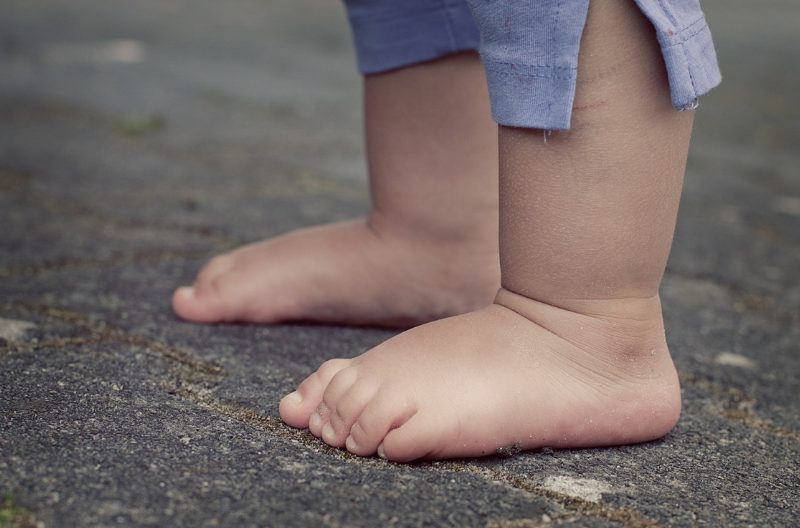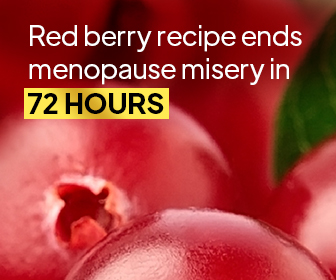Starting a family is a highly personal choice and, for some, it’s simply not the right one. Choosing to be childfree or nulliparous is becoming more and more common.
But what are the health and lifestyle implications of nulliparity? Let’s take a moment to review what science has to say about this way of life and how it may impact your wellness.
Nulliparous Definition: What it Means to Be Childfree
First of all, let’s deal with the question at hand. What does nulliparous actually mean? Put simply, this term is applied to women that are childfree. It is a medical word and does not differentiate between women who choose not to have a child, and those who can’t have children due to medical problems. However, researchers, Abma and Martinez, has identified three different categories into which nulliparous women fall:[1]
1. Temporarily childless

Temporarily childless women are those who don’t have any children at the moment (i.e. have not had any “live births”) but expect or plan to have children in the future. Since many women are deciding to have kids later in life, the chances of them staying childfree for longer are high. It may be that these women try to conceive a child at a later stage in their life.
2. Involuntarily childless

Of course, some women who are nulliparous would rather not be. The term “involuntarily childless” is applied to women who have trouble conceiving or who have a partner who has fertility problems. It is often applied to women who are married and living with their partner for three years or more, regularly having sex, but have never conceived a child. The term may also be used in situations in which a doctor has advised a woman against having children because of a medical condition.
3. Voluntarily childless

Some women choose to be nulliparous. The term given to these women tends to be “voluntarily childless”. There could be an array of reasons that a woman would choose to be childfree including career reasons, financial issues, or simply no desire to be a mother. Whatever your reason for not wanting to have a child, that is perfectly valid. Every woman has the right to decide what to do with her body and what to do with her life.
Nulliparity describes the condition of a woman having never given birth.
Are Childfree Women Becoming the Norm?

Whether you’re considering staying childfree by choice or have a condition that means you can’t have a child, you’re not alone. In recent years, how people deal with family planning has transitioned. The fact of the matter is that some women choose never to have children, a shift which will affect the overall numbers.
The national statistics show that there has been a global shift toward nulliparity. In the US, more than 50% of women between the ages of 25 and 29 are childfree, while more than 30% of 30 to 34-year-olds are childfree.[2] Even more surprising is the fact that more than 17% of 45 to 50-year-olds are nulliparous, suggesting that they will never have children due to their age and lower chances of fertility.
Childlessness is on the rise
So, when did things start to change? Between the mid-1970s and the mid-2000s, there was a dramatic shift in the number of women remaining childless. The amount of nulliparous women doubled from around 10% to 20%, showing a massive change in people’s overall attitudes.[3] Since then, it has become clear that fewer women want to start a family young and, in some cases, at all. There could be a variety of reasons for this, including economic changes, women’s levels of education, and their social circles.

Women may have children later
The age at which women decide to have children has slowly risen in the last 15 years, according to a report by NPR.[4] What’s more, the national census shows that the number of women who are childfree in their early 30s has shot up.[5] In fact, in 2016, the statistics showed that more than 30% of women in their early 30s had never had a child.
The experts noted that this didn’t necessarily mean that the women would stay nulliparous for the remainder of their life. There’s every chance that American women are simply deciding to start families later. Since your chances of conceiving a child are much higher before the age of 35, the trend could mean that more women will become nulliparous.[6]
There’s immense pressure to have kids
Despite the move toward fewer women having children, there’s still a terrible stigma that surrounds the idea of being childfree. Whether it’s your parents asking when you’re going to start a family or friends telling you that you will “change your mind”, the pressure to have a baby is often hard to ignore. Most women feel this push at some point during their life, especially as they reach their 30s. However, putting the mounting social expectancy aside, research suggests that many women don’t allow the pressure to cause them any stress.
A survey from the University of Nebraska-Lincoln found that American women do indeed feel “immense pressure” to have a child.[7] The study looked at almost 1200 women who were of reproductive age and childfree. The reasons for the women’s nulliparity varied from medical conditions, a delay in pregnancy, and choosing to be childfree. The study found that while the women admitted that their friends and family did want them to have children, few of them felt that the pressure caused them stress.
What Science Says About the Health Risks Nulliparous Women Face
You might have heard it before now – leading a childfree life is bad for your health. It’s a sensational concept that’s often thrown around but there is some truth to it. Choosing to be childless could have some impact on your overall health. However, it’s important to realize that there are ways in which you can manage this issue.
Nulliparous women may find that they are at greater risk of some medical conditions. With that in mind, it’s crucial that you do your research and understand how nulliparity could be linked to your wellness.
Ovarian and uterine cancer
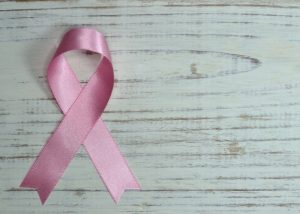
Nulliparity may well affect your gynecological health. Let’s take a moment to look at the impact that choosing the childless life has. One of the biggest risk factors that women have to consider is a higher chance of ovarian and uterine cancer.[8] The research suggests that since nulliparous women have more menstrual cycles between their first period and the menopause, there may be a hormonal link to the high chance of cancer development.
The study used nuns as participants, as they remain virgins and never have children, and looked at their risk level. The results found that the nuns (who were nulliparous) typically had a higher chance of gynecological problems including cancer, endometriosis, and uterine fibroids.[9] Whether you’re childfree by choice or otherwise, taking care of your health should be your top priority. With that in mind, you should schedule regular appointments with your gynecologist and let them know about your circumstances.
Breast cancer

Around one in eight women will develop breast cancer at some point during her life, according to the Breast Cancer Org.[10] What’s more, a woman’s chances of dying from this particular type of cancer are higher than any other type. It’s worth taking control of your health and wellness to try to prevent the onset of cancer at all costs. Making small lifestyle changes could dramatically decrease your risk level.
Surprisingly, the more children a woman has in her lifetime, the lower her chances are of developing breast cancer, according to the Canadian Cancer Society.[11] The researchers noted that nulliparity can increase your chances of getting breast cancer. However, there are other risk factors that also play a role in how likely you are to develop the disease.
Other factors include smoking, drinking too much alcohol, and failing to eat a healthy and balanced diet. In fact, experts believe that a person’s diet is partly responsible for around 30 to 40% of all cancer cases.[12] Ensuring that you eat well and try to lead a somewhat healthy lifestyle could help you to lower your risk levels, whether you choose to be childfree or have a family. Taking care of your daily health should always come first.
Early onset of arthritis
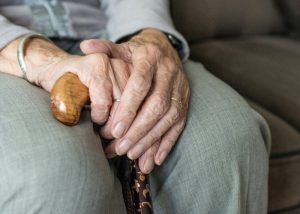
Arthritis is now the leading cause of disability in America with 54 million adults being diagnosed with the condition.[13] Believe it or not, there are 300 different types of arthritis out there, although they all come under the same umbrella term. The most common symptoms of this illness include joint pain, swelling, and stiffness.
Sufferers may also find that it’s hard to maintain a full range of motion in their joints. Needless to say, the problem can impact people’s everyday lives, which is why it’s important that you take preventive measures to delay the onset of the disease.
Whether or not you decide to have children could have an impact on this condition. Research from the European League Against Rheumatism found that nulliparous women tend to be diagnosed with arthritis earlier than those with children.[14] Plus, the study found that there was an average of five years difference between when these two groups were diagnosed with the onset of the condition.
Unfortunately, the researchers were not able to draw a conclusion as to why nulliparous women tend to develop arthritis earlier than others. One explanation could be that parents (and grandparents) often stay more active in later life than those without families. However, more research into the area is needed to determine if this happens to be the case.
Depression and sadness risk
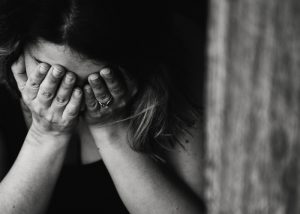
Could nulliparity make you unhappy? That’s the question that researchers from the University of Michigan set to find out the answer to. Their study looked at 6000 different women to determine how choosing a childfree life affected women’s happiness levels in later life.[15] The theory was that deciding not to start a family could have some serious psychological consequences many years down the line. The results found that women who didn’t have children were somewhat less happy and more depressed than those who did have kids.
However, the researchers wanted to take a deeper look at this issue. They compared women who had children “early” (before the age of 19), “on time” (between the age of 19 and 25), and “late” (25 or later), with women who were nulliparous. The early mothers were the most depressed while the late mothers were most satisfied with their lives.
On the other hand, the nulliparous women were about as depressed and satisfied as those who had babies “on time”. That suggests that having a child at the right time is about as satisfying and psychologically impactful as not having one at all. Despite the range of results, the report suggests that the decision to have/not have a child could have a remarkable impact on your mental wellness as you age.
It’s important to remember that the choice of nulliparity is individual and unique to each woman in each situation. While there is an increased risk of some medical conditions associated with not having a child, there are also lifestyle issues to be considered. For instance, women should decide whether they can afford a child or whether they have the time to dedicate to child care. Weighing up the advantages and disadvantages of this particular decision is crucial when it comes to making up your mind.
What Should I Do Now if I’m Childfree by Choice or Due to a Medical Condition?
Are you a nulliparous woman? Regardless of what the reason for your nulliparity may be, it’s important that you take measures to manage this type of lifestyle. The childfree life has a range of advantages including less responsibility, improved finances, and a higher level of freedom. However, there are some pieces of advice you may well wish to head. Here are some of the things you should do if you intend never to have children.
Talk to your partner

It takes two to tango…and it takes two to decide whether or not to have a child. If you have a long-term partner, your decision to stay childfree will ultimately impact them. Having an open and frank discussion about the situation is the most suitable course of action. Research from the British Sociological Association found that it takes one conversation for couples to decide whether to have children.[16]
The outcome of this conversation could change the dynamic of your relationship. It’s important to remember that many people grow up expecting to have a family when they reach the right age. If that’s the case, you could find that it’s smart for the two of you to go your separate ways. Starting a family is a polarizing issue and, as hard as it might be, each of you needs to do what’s right for yourself.
Consider your birth control options

Choosing the childfree life is one thing, but making sure that you don’t fall unexpectedly pregnant is quite another. When you decide that nulliparity is the way to go for you, you then have yet another issue to face. Deciding on the right birth control for you is no simple feat. You need to weigh up the cost of each form of contraception, how it will impact your life, and whether it’s a convenient method for you.
One type of birth control that you may want to consider is an intrauterine device or an IUD. Research from the Contraception Journal suggests that nulliparous women are less likely to use IUDs than women who have given birth.[17] The reason is that historically women who had not had a child were not offered this form of birth control.
Despite this fact, the devices are perfectly safe for both nulliparous women and those who have had children. Plus, they also have high acceptability ratings and low failure rates. For that reason, experts now recommend that women who don’t have children consider these forms of contraception as well.
Look after your general health

Of course, we should all do what we can to look after our health on a day-to-day basis. Should you decide to be nulliparous, this issue becomes ever-more pertinent. Now that you’re aware of the health risks associated with this particular lifestyle, you need to ensure that you do all of you can to keep yourself fit and healthy. Whatever age you are, you can start building healthy habits now to ensure you’re on the right track later in life.
Small interventions, such as eating a decent diet, exercising regularly, and drinking less alcohol could make a huge difference. Plus, you should ensure that you visit a medical professional on a frequent basis to get all the advice and support you need.
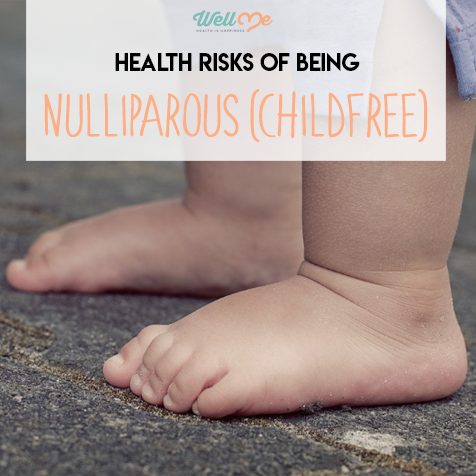
Conclusion
Every woman has the right to choose whether to start a family or remain childfree. If you happen to choose the latter, doing your research is key. This guide should have given you a brief overview of how this path could affect your life. Taking steps toward becoming healthier and adapting your lifestyle to suit your nulliparity is the best way forward.
References
- [1] https://core.ac.uk/download/pdf/81708030.pdf
- [2] https://www.statista.com/statistics/241535/percentage-of-childless-women-in-the-us-by-age
- [3] https://link.springer.com/chapter/10.1007/978-3-319-44667-7_8
- [4] https://www.npr.org/sections/health-shots/2016/01/14/462816458/average-age-of-first-time-moms-keeps-climbing-in-the-u-s
- [5] https://www.census.gov/newsroom/blogs/random-samplings/2017/05/childlessness_rises.html
- [6] https://www.yourfertility.org.au/everyone/age
- [7] https://www.sciencedaily.com/releases/2012/10/121009121807.htm
- [8] https://www.omicsonline.org/womens-health/nulliparity.php
- [9] https://www.omicsonline.org/womens-health/nulliparity.php
- [10] https://www.breastcancer.org/symptoms/understand_bc/statistics
- [11] http://www.cancer.ca/en/cancer-information/cancer-type/breast/risks/?region=bc
- [12] http://www.cancer.ca/en/cancer-information/cancer-type/breast/risks/?region=bc
- [13] https://www.arthritis.org/about-arthritis/understanding-arthritis/arthritis-statistics-facts.php
- [14] https://www.sciencedaily.com/releases/2009/06/090611110948.htm
- [15] https://news.umich.edu/when-to-have-a-child-if-ever-the-impact-in-later-life
- [16] https://www.sciencedaily.com/releases/2014/04/140425075237.htm
- [17] https://www.contraceptionjournal.org/article/S0010-7824(16)30385-7/pdf

